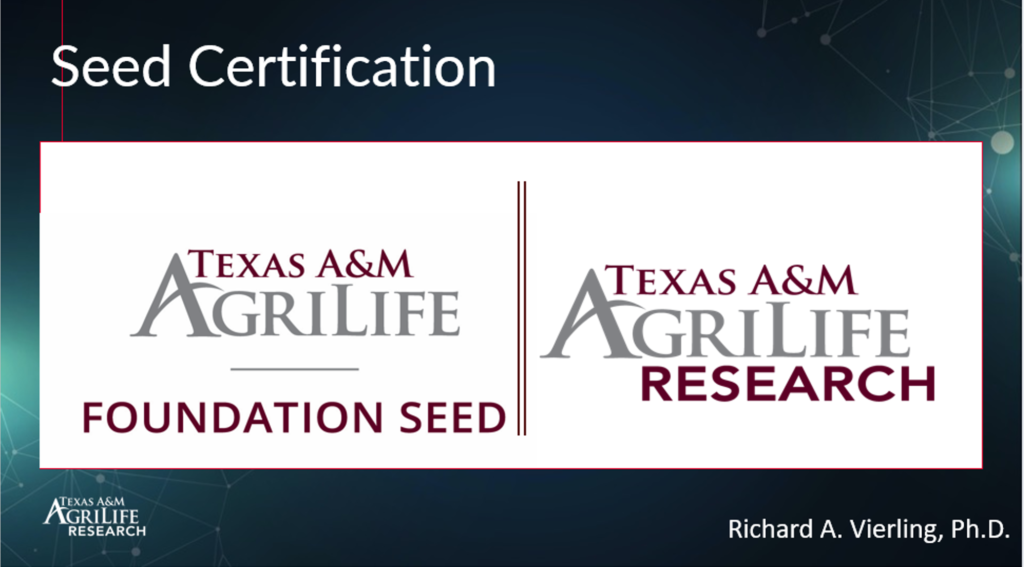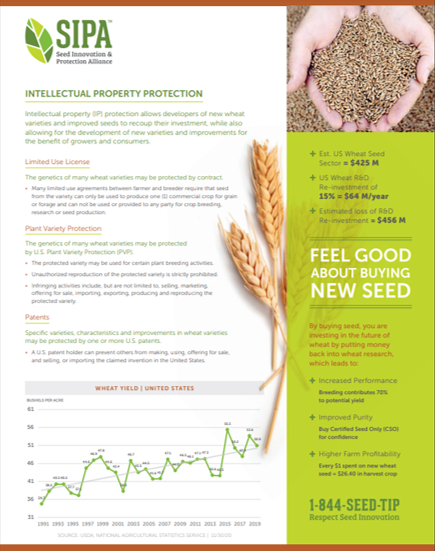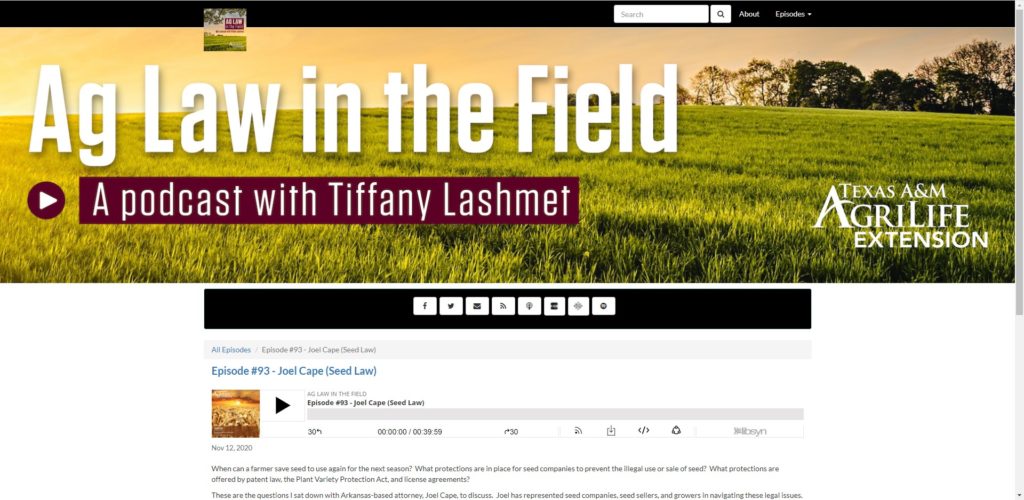Resources
Certified Seed and The Laws on Brown Bagging

Grown with integrity. Backed by science
Compliance and Seed Programs
Texas A&M AgriLife Research provides guidance and educational resources related to plant variety protection, certified seed programs, and compliance requirements. These programs support the integrity of protected varieties and help growers and seed companies make informed, responsible decisions.
Learn more about Certified Seed and Brown Bagging
Learn more about seed protection, licensing, and compliance programs administered through Texas A&M AgriLife Research.
Certified seed information within reach
‘Certified Seed and the Laws on Brown Bagging’ brochure
This free, printable trifold brochure reviews the information on this webpage and offers contacts for more information.

‘Seed Certification’ Presentation
This free, printable PowerPoint file prepared by Texas A&M AgriLife Foundation Seed can be downloaded and used for presentations.

‘SIPA Intellectual Property Protection’ fact sheet
This free, printable double-sided printable fact sheet from the Seed innovation and Protection Alliance explains how to know if your seed may be protected.

Cover Crops Considerations Guide by AOSCA and ASTA (PDF)

Ag Law in the Field Podcast: “Seed Law”
This free podcast discusses when farmers can save seeds, protections in place for seed companies, patent law, the Plant Variety Protection Act and license agreements.

Quality, Professional Environmental, Conservation and Cover Crop Seed Dealers in Your Region
It’s important to buy seed from a professional seed dealer. Find seed dealers for environment & conservation seed, cover crop seed, and pollinator mixes in your area using this interactive map from the American Seed Trade Association.

Compliance and Seed Programs
Related Data and Reports
Access statewide performance data from Texas A&M AgriLife Research variety testing programs.
Small Grains Variety Testing Data
Peanut Variety Testing Data
